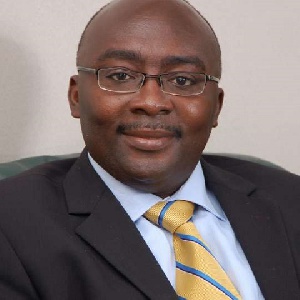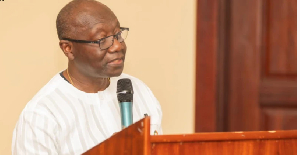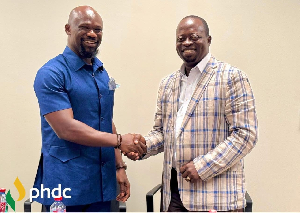By Nana Yaw Osei
The IMANI Ghana’s quick rebuttal to Dr. Bawumia’s assessment on the state of Ghana’s economy presents some questions:
Did IMANI seek expert’s advice from economists or they assented to solipsism?
Where did IMANI get their data to quickly uncover the pitfalls in the aforesaid analysis?
When we experience physical malady, it is only a physician who can name the disease through diagnosis.
In the academic world, it is only scholars of the same discipline that can appraise or critique their peers. This partly explains why academic journals are scholarly peer-reviewed.
The purpose of this article is to explain the significance of annotation in knowledge acquisition by comparing Dr. Bawumia’s profile with some leading members of IMANI.
The credentials, academic qualifications and work experience are very significant as they help learners and the general public to know the authenticity of information given to them.
I will begin by presenting the profile of Dr. Bawumia and then Mr Franklin Cudjoe:
Profile of Dr. Bawumia
After graduating from Tamale Secondary School, Bawumia proceeded to the United Kingdom where he undertook professional banking studies and obtained the Chartered Institute of Bankers Diploma (ACIB) with distinctions in Banking Law, Monetary Economics, Accounting and Banking within the rather short period of 18 months! He obtained undergraduate degree in economics in 1987 from Buckingham University
He subsequently gained admission to Oxford University, Lincoln College, where, one year later, he received a Master's Degree in Economics. He pursued his doctoral studies in economics at the reputable Simon Fraser University in Vancouver, British Columbia, Canada, where he obtained a Ph.D. in Economics in 1995. His areas of concentration include Macroeconomics, International Economics, Development Economics and Monetary Policy. He has numerous publications to his credit.
From 1988 to 1990, Dr. Bawumia worked as a lecturer in Monetary Economics, and International Finance at the Emile Woolf College of Accountancy in London, England. He also served as an economist at the Research Department of the International Monetary Fund in Washington, DC, USA.
Between 1996 and 2000, Dr. Bawumia served as an Assistant Professor of Economics at Hankamer School of Business, Baylor University, Texas, USA, where he also received the Young Researcher Award in 1998. As a result of Dr. Bawumia's commitment to excellence in teaching, he made the list of "Who is who among America's Teachers' in 1999.
Dr. Bawumia returned to Ghana in 2000 to work as an economist at the Bank of Ghana. He rose through the ranks from Senior Economist to Head of Department, and subsequently as Special Assistant to the Governor of the Bank. His Excellency President J.A. Kufuor appointed Dr. Bawumia as Deputy Governor of the Bank of Ghana in June 2006 (Source, modernghana.com. August, 15, 2008).
Mr Franklin Cudjoe
Mr Franklin Cudjoe obtained bachelors’ degree in land economy from Kwame Nkrumah University of Science and Technology in 2002. He obtained MBA, Non-profit public and organizational management from Atlas Economic Research foundation.
He is currently pursuing Doctorate in Philosophy (D. Phil) at the University of Buckingham. Mr Kofi Bentil is a brilliant attorney, and Mr Bright Simons, a brilliant IT man (I stand for correction on Messrs. Bentil and Simons).
These IMANI guys are fantastic individuals contributing to the development of Ghana. However, they are not economic experts to punch holes in Dr. Bawumia’s assessment of current state of Ghana’s economy.
As an organization, IMANI, needs expert’s advice to undertake such exercise. MBA, Law and IT are different from economics and thus those graduates cannot critique an economist of Dr. Bawumia’s pedigree. They could have the same data but the methodology, analysis could be different.
Empiricism and statistical data are not free from philosophical encumbrances. Many scholars are befuddled with the understanding of competing theories relating to a given data. The imperative need of IMANI seeking expert’s advice must be encouraged.
Per his publications in the scholarly peer-reviewed journal of economics, Dr. Bawumia is an authority while our IMANI brothers are not. IMANI is not in the capacity to critique Dr. Bawumia on the economy. At least a Masters in economics with some years of experience would have been fair enough. “I know that I am intelligent because I know that I know nothing.” (Socrates)
Writer's e-mail: padigogoma77@yahoo.co.uk
Opinions of Wednesday, 14 September 2016
Columnist: Osei, Nana Yaw















